Azadi Innovation Factory: Iran’s Largest Startup and Innovation Hub
Azadi Innovation Factory in Tehran is more than a co-working space — it is the beating heart of Iran’s modern startup ecosystem. Established in 2017 as a branch of Pardis Technology Park, this massive 18,500-square-meter complex sits near the iconic Azadi Square. Once an old electrode factory, it has been transformed into the largest innovation hub in West Asia, supporting over 150 startups and employing more than 3,500 graduates and entrepreneurs.
At a time when Iran faces economic sanctions and limited international financial access, Azadi Innovation Factory has become a symbol of resilience and innovation, connecting young talent with investors, mentors, and universities. Its mission goes beyond office space: it is about nurturing knowledge-based businesses and empowering Iran’s role in the global innovation landscape.
| Aspect | Details |
|---|---|
| Location | Tehran, Lashkari Expressway (Azadi Innovation Factory) |
| Area | ~18,500 square meters with 10 halls/silos |
| Startups active | Over 150 |
| People capacity | Over 1,200 |
| Linked with | Pardis Technology Park |
| Number of accelerators | 9 (various tech sectors including IT, healthcare, fintech) |
| Facilities | Co-working spaces, mentorship, investment access, networking, restaurant, gym, café |
| Supported sectors | IT, healthcare, fintech, digital content production |
| INIF role | Financial support, loans with favorable conditions for startups |
| History | Renovated former electrode factory from 1950s, reopened as entrepreneurship hub in 2019 |
History and Mission of Azadi Innovation Factory
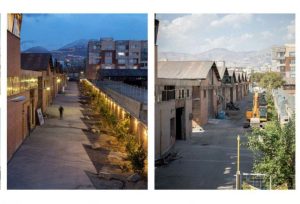
The Factory was born from a collaboration between the Iranian government, private sector, and the Vice Presidency for Science and Technology. When it opened in 2017, its vision was to bridge the gap between academia and commercialization.
The mission is clear:
- Attract young entrepreneurial teams.
- Provide world-class infrastructure and services.
- Integrate startups into the broader Pardis Technology Park ecosystem — often called the “Silicon Valley of the Islamic World.”
By converting an abandoned industrial site into a vibrant hub, the Factory became a model for urban regeneration through innovation. The investment in its reconstruction reached nearly 150 billion Tomans (several million USD) — a bold bet on the future of Iran’s knowledge economy.
Facilities and Programs
In just a few years, Azadi Innovation Factory has evolved into one of the region’s most complete entrepreneurial ecosystems. Covering 18,500 square meters near Azadi Square, it now supports over 150 startups through nine accelerators and a network of mentors, investors, and policymakers.
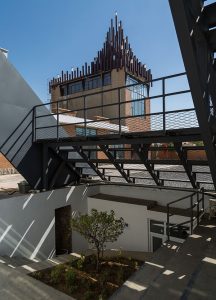
With over 1,200 staff and founders active daily (and capacity for 2,500 people), the Factory has become a vibrant community. Its startups have already launched 30+ products and services in industries ranging from Fintech and HealthTech to AI, cybersecurity, digital content, and logistics.
The ecosystem is strengthened by university partnerships that funnel top graduates into the hub, as well as professional services that help startups navigate legal, financial, and scaling challenges. Cafés, gyms, and excellent metro/bus/airport access make it not only functional but attractive for young entrepreneurs.
Unlike traditional office spaces, Azadi Innovation Factory was designed to make entrepreneurship a lifestyle. The campus includes:
- Co-working and private offices.
- Innovation centers and nine specialized accelerators.
- Restaurants, cafés, gyms, and sports clubs.
- Conference halls, meeting rooms, and a prayer hall.
This mix of work and social facilities creates a complete ecosystem where entrepreneurs can live, network, and grow their ideas.
Startup Support Programs
The Factory’s programs address every stage of the entrepreneurial journey:
- Incubation & Acceleration – tailored support for early-stage ventures.
- Mentorship – guidance from industry veterans and academics.
- Networking – connections with corporates, investors, and policymakers.
- Capital Access – links to venture capital, innovation funds, and angel investors.
- Post-Acceleration – ongoing synergy between startups and accelerators in a shared space.
This holistic model reduces startup failure rates and ensures continuity after acceleration, which many hubs worldwide struggle to achieve.
Supported Startups and Industries
With more than 150 active startups, the Factory covers a wide spectrum of industries:
- Information Technology & Digital Services
- Healthcare & E-health Solutions
- Financial Technology & Insurance Innovations
- Biotechnology & Nanotechnology
- Cybersecurity & Data Solutions
- Digital Content & Creative Industries
- Architecture, Urban Life, and Smart Cities
- Tourism & Cultural Tech
In its first year alone, startups launched over 30 products and services. For example, fintech companies created localized solutions for online payments, while e-health ventures developed telemedicine platforms to serve patients in remote provinces.
By focusing on industries both essential to Iran’s economy and exportable abroad, the Factory strengthens Iran’s innovation capacity even under restrictions.
Role in Iran’s Startup Ecosystem
Azadi Innovation Factory acts as the connective tissue of Iran’s entrepreneurial landscape. Its proximity to major universities like Sharif University of Technology makes it a natural magnet for students and researchers.
Key roles include:
- Lowering go-to-market costs by sharing resources.
- Bridging academia and commercialization by transforming research into products.
- Enhancing startup visibility in both national and international markets.
- Supporting knowledge-based firms — a critical policy priority for Iran’s government.
By integrating with Pardis Technology Park, which hosts hundreds of knowledge-based companies, the Factory ensures startups are not isolated but part of a wider innovation cluster.
Key Events and Partnerships
The Factory is home to nine specialized accelerators, each focusing on a different industry or entrepreneurial niche. Among the most notable are:
-
DigiNext – a high-profile accelerator supporting startups in multiple verticals, from e-commerce to creative technologies.
-
Planet Accelerator – a multi-sector hub that nurtures early-stage teams across diverse industries.
-
Rubikamp – an educational and youth-focused accelerator that helps teenagers develop entrepreneurial and problem-solving skills.
These accelerators not only provide capital and mentorship but also serve as anchors for entire sheds, with each hall of the Factory housing different accelerator programs, innovation labs, or event spaces. This modular setup allows Azadi to host a diverse ecosystem under one roof, while keeping industries clustered for efficiency.
The Factory regularly hosts:
- Accelerator Demo Days where startups pitch to investors.
- Hackathons and Startup Weekends to spark new ideas.
- International innovation exchanges through innovation diplomacy led by Pardis Technology Park.
Partnerships
- Universities: close collaborations with Tehran’s top institutions to attract young talent.
- Investors: links with the Iran National Innovation Fund (INIF) and angel networks.
- Global Cooperation: although limited by sanctions, the Factory pursues R&D partnerships abroad and engages in “innovation diplomacy” to build bridges.
This makes it not just a local hub but a gateway for Iran’s global innovation ambitions.
Success Stories and Challenges
While many startup names remain under the radar, the Factory has enabled:
- Dozens of early-stage product launches.
- Growth in startup employment — thousands of jobs created.
- Expansion of local production to replace imports during sanctions.
Some of Iran’s most recognized startups either grew at, or are currently based in, Azadi Innovation Factory. Among the top names:
-
ZarinPal (Fintech) – Iran’s leading payment gateway, processing millions of monthly transactions and enabling the country’s digital economy.
-
Dr.Next (HealthTech) – a telemedicine and IoT pioneer bringing advanced healthcare access to rural and underserved areas.
-
Torob (AI) – a price comparison and product discovery engine, leveraging AI to expand across MENA markets.
-
Snapp (Mobility & Digital Content) – the region’s super-app, now piloting electric vehicle fleets to push sustainable transport.
-
Emofid (Fintech) – a robo-advisory and online trading platform democratizing access to Iran’s capital markets.
-
BimeBazar (InsurTech) – an online insurance aggregator using AI to assess risk and personalize coverage.
-
Alibaba.ir (Marketplace & Logistics) – one of Iran’s largest e-commerce and travel platforms, offering integrated fulfillment solutions.
-
DigiNext (Accelerator) – not just an accelerator but also a successful brand in its own right, having launched multiple high-impact ventures.
-
Planet Accelerator (Multi-sector) – supporting a broad base of early-stage companies.
-
Rubikamp (EduTech) – a unique non-profit initiative teaching teenagers innovation, creativity, and entrepreneurship.
Together, these companies highlight the breadth of Azadi’s ecosystem, from fintech and logistics giants to social-impact startups and youth accelerators.
Challenges
Despite its growth, the Factory faces ownership and eviction-related disputes, which have at times caused uncertainty among founders. This, combined with Iran’s broader economic sanctions and restricted access to international capital, creates ongoing tension in the community. Yet, startups remain resilient — continuing to scale, adapt, and launch products even in challenging conditions.
- Restricted global funding: Startups face limited access to venture capital and banking systems like SWIFT.
- Sanctions: Difficulty expanding regionally and globally.
- Commercialization gap: Many academic innovations still need to be translated into scalable businesses.
Despite these, the Factory has emerged as a beacon of resilience, demonstrating how Iran’s innovation community adapts under pressure.
Future Outlook
With current occupancy at around 1,200 members, the Factory is on track to expand to its 2,500-person capacity within the next few years. This expansion, coupled with stronger partnerships from both government and private sector players, positions Azadi to remain at the forefront of Iran’s knowledge-based economy strategy.
Its future rests on strengthening ties with global innovation ecosystems, upgrading shed infrastructure, and ensuring that Iranian startups can connect to international markets despite political and economic headwinds. With continued government support and rising private sector interest, it is poised to:
- Increase the number of startups and accelerators.
- Strengthen ties with international partners.
- Drive Iran’s economic diversification away from oil and toward knowledge-based industries.
In the long run, Azadi Innovation Factory could become a regional leader in innovation hubs, comparable to Dubai Internet City or Turkey’s Technopark.
Frequently Asked Questions
What is Azadi Innovation Factory?
Azadi Innovation Factory is Iran’s largest startup and innovation hub, launched in 2017 as part of Pardis Technology Park in Tehran. It provides facilities, mentorship, funding access, and networking opportunities for entrepreneurs.
How many startups are based at Azadi Innovation Factory?
The Factory currently hosts more than 150 startups across industries such as IT, fintech, biotech, and tourism.
What industries does Azadi Innovation Factory support?
Its accelerators and programs focus on IT, healthcare, digital content, fintech, insurance, nanotechnology, cybersecurity, and creative industries.
Who funds Azadi Innovation Factory?
The hub is funded by the Iranian government, private sector, and innovation bodies like the Vice Presidency for Science and Technology and the Iran National Innovation Fund.
Why is Azadi Innovation Factory important for Iran’s startup ecosystem?
It acts as a bridge between academia and commercialization, lowers startup costs, and provides resilience against sanctions by enabling local innovation.
What are the future plans of Azadi Innovation Factory?
Plans include expanding support to 2,500 entrepreneurs, boosting international partnerships, and strengthening Iran’s position as a regional leader in innovation.



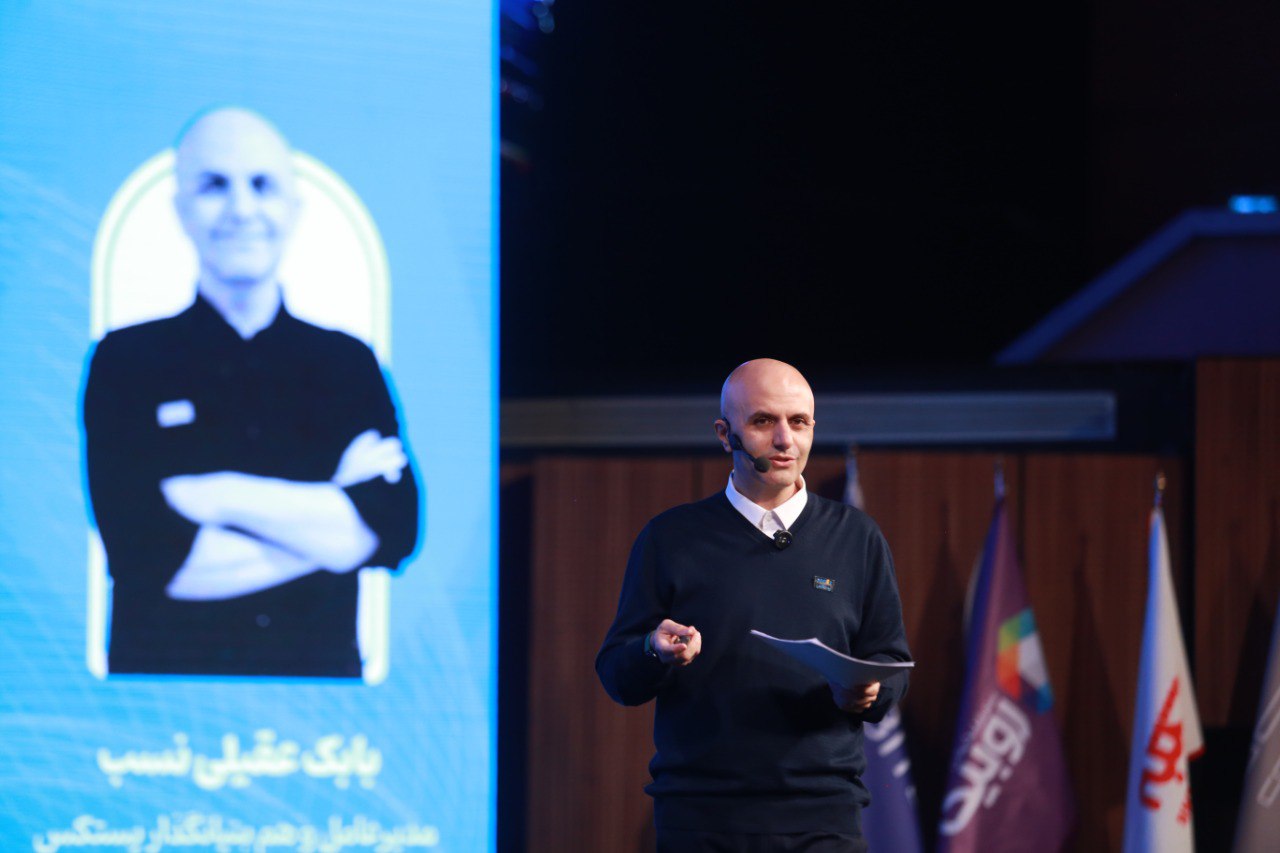

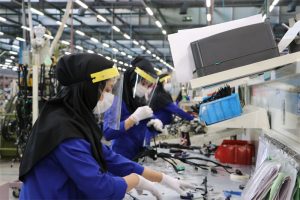



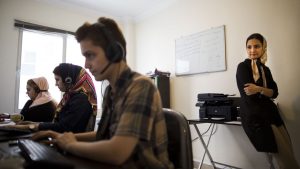

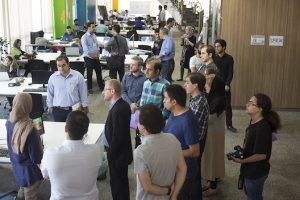

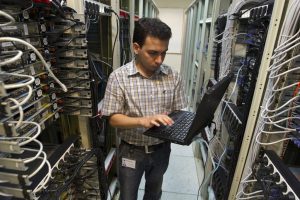

Post Comment